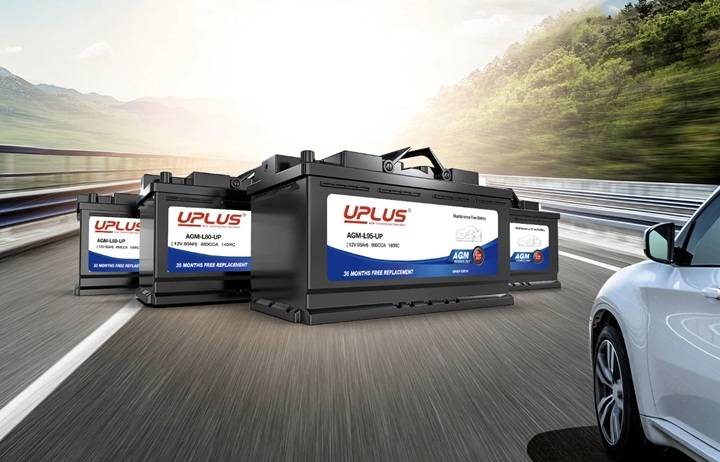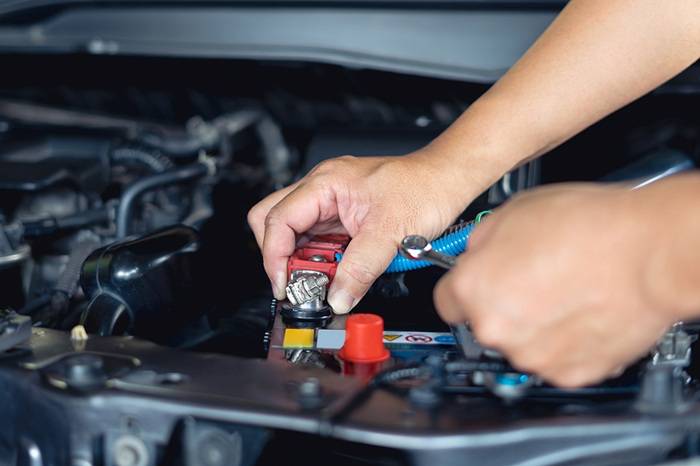
How Long Do Car Batteries Last? The Ultimate Guide to Battery Life, Warning Signs, and Longevity Tips
Our cars are what we count on for it all, morning commutes to the office and grocery shopping to cross-country road trips down the roads of the nation. But no matter how many times we bring the car into the service station for oil changes, tire rotations, and brake pads, perhaps one of the most essential bits in the engine compartment is ignored: the car battery. It’s the flow that goes through the electrical circuit of your automobile, and the motor wouldn’t even turn on if it didn’t have it. Therefore, the question which should be on the mind of every driver should be: how long will a car battery last?
Although an auto battery will last between 3 and 5 years, for the record, all two-battery systems are not created equal. Your driving styles, weather, model of car, and service are all the reasons your car battery life is not something you can count on your driving styles, weather, model of car, and service. If you ever left a car hoping to be greeted with complete silence when you insert the key, then you’re more familiar than anyone with the frustration (and cost) of battery death.
Here in this guide, we will guide you through the whole gamut of facts about a car battery life cycle. From the brief primer to how car batteries work to symptoms of failure, tips on extending its life, and when to replace with a fresh one, this article will have you in the driver’s seat before battery trouble ruins your day.
Let’s get charged up with facts.
Understanding Car Batteries: What Do They Really Do?

It’s useful to know exactly what a car battery actually does before learning about how long they last. Your car battery actually does some pretty important things:
- Turn the Engine On – It provides the power to turn your starter motor and start the engine.
- Powers Electrical Accessories – From your headlamps and dashboard lighting to your infotainment, air conditioning, and dashboard when the engine is not running.
- Stabilizes Voltage – The battery even controls the voltage of the auto electrical system for the alternator.
Most automobiles have lead-acid batteries, although hybrid and electric cars use lithium-ion batteries. Lead-acid batteries are cheap and durable but will eventually pass away after some time, especially in heavy usage.
How Long Does a Car Battery Last?
So the old question: how long do car batteries last?
- The 3 to 5 year average applies to lead-acid car batteries.
That duration can be affected by a great many factors, however:
- Ideal Conditions (mid-climate, high mileage): 5 years
- Normal Conditions: 3–4 years
- Harsh Conditions (hot climate, high mileage, many short trips): Perhaps as short as 2 years
If you live in an extremely hot or extremely cold environment, don’t drive your car at all, or drive your car to make lots of short trips that won’t provide your alternator with enough time to recharge your battery completely, then you’ll probably have to replace it within the 2–3 year time frame.
Things That Affect Car Battery Lifespan
Having spoken about what takes away from, and adds to your car battery’s life, let’s talk a bit.
- Temperature and Climate
- Extreme temperatures are hard on batteries.
- Heat evaporates the liquid in the battery and destroys what’s left over.
- Cold retards battery chemicals and thins them out.
Automobiles operated in extremely hot, sunny environments like Arizona or Florida drain battery life sooner than automobiles operated under regular weather.
- Driving Habits
Long running and long distance is wonderful for your battery charge and lifespan. Short running or a lot of not running them destroys it.
- Battery Type and Quality
Batteries are not all the same. Sticker, heavier, more expensive batteries last longer and can absorb a bit of punishment.
- Electrical Load
Got power-sucking accessories such as high-wattage radios or in-car entertainment units? That constant drain charges the battery a bit more.
- Alternator Health
Is your alternator dead or gone? That is, if it is, then maybe it is not charging your battery to its full capacity, and that would make it die sooner.
- Maintenance and Corrosion Issues
Dirt, terminal corrosion, or loose connections will short circuit current and cut your battery life short.
Symptoms Your Car Battery Is Dying
Batteries will not just suddenly just magically die off for no reason without warning. There are several rather obvious indications your battery is dying.
- Slow Crank Engine – Slow cranking engine, or slower than usual cranking, or running slow.
- Weak Lights – Flickering, or weak headlights, dashboard lights, or interior lights.
- Clicking Sound when Turning the Key – Intermittent clicking sound usually indicates there is no power in the battery.
- Check Engine or Battery Light – Dash warning light.
- Electric Failures – Radio, infotainment system, or power windows simply won’t function.
- Swollen Battery Case – Blown up or puffed up battery case indicates your battery is compromised internally.
- Rotten Egg Smell – Sulfur smell indicates that your battery is leaking acid.
- Frequent Jump Starts Needed – The faster you are in procuring jumper cables, the poorer your battery life.
If you already felt one of the above symptoms, then it is already time to let your battery be tested or checked by a technician.
How to Test Your Car Battery
You can check the condition of your car battery in the following manner:
- Multimeter Test: Switch off the engine and there will be a normal 12.6 volts of the battery. It will be 13.7 to 14.7 volts when the engine is operating.
- Load Test: Mechanic can perform a load test to know how the battery is performing under load.
- Free Battery Test at Auto Parts Stores: Free battery test is done at most auto part stores such as AutoZone or Advance Auto.
Check the battery occasionally, especially after 3 years, and you will not be witnessing any surprise breakdowns.
Also Read: When Calls the Heart Season 11
Tips to Make Your Car Battery Last Longer
Just like your tire or your brakes, a little bit of love and TLC will go an incredibly long way. To keep your battery alive.
- Regular Driving
Regular driving will recharge the battery through the alternator. Without regular driving, buy a battery maintainer (trickle charger).
- Cleaning Terminals
Baking soda and water solution clean terminals and check for corrosion.
- Short Trips Avoid
Short runs give the alternator no chance to recharge the battery. Consolidate all errands into one long trip whenever possible.
- Avoid Excessive Electronics When Off
Having the radio, AC, or lights on when the vehicle is off is a battery drain.
- Parasitic Drains
Worn-out wiring or accessories will drain energy off when the car isn’t operating and will drain your battery during the night.
- Replace and Stay Ahead of Failure
Get your battery tested at oil changes or checks when your battery is 3–4 years old—before it’s flashing “Failure imminent to arrive.”
Hot and Cold Weather Car Battery Tips
Extreme temperature is the number one battery killer, so follow these tips to have it in check year-round.
In Warm Weather:
- Park in shade
- Check fluids if possible
- Clean battery top so heat does not get trapped
In Cold Weather:
- Wrap with heater or battery blanket
- Charge your battery full at all times
- Do not leave your car parked for a long time
How Much Does It Cost to Replace a Car Battery?
Prices vary by size, brand, and battery type.
Average Prices:
- Lowest cost lead-acid battery: $80–$150
- Premium/AGM battery: $150–$250
- Hybrid vehicle batteries: $1,000–$6,000+
- EV batteries: $10,000+ (but will be good many times longer)
You’ll pay another $20–$50 in repair shop labor time if you don’t do it yourself.
DIY Battery Replacement Instructions
- Always wear safety glasses and gloves
- Disconnect negative cable, then positive
- Disconnect battery hold-down brackets (if so equipped)
- Clean terminals before putting on a new battery
- Connect the positive first, then the negative
Recycle or dispose of dead battery (most charge nothing to recycle)

When Do You Need to Replace Your Battery?
Don’t get left behind by your car. Replace your battery when:
- It’s over 4–5 years old
- You’ve had a series of frequent jump starts
- Low voltage or capacity decline is shown by a test
- You’re experiencing continuous electronic failure or severely far-dimmed
- Case is exhibiting clear damage or swelling
Battery Warranties: What’s Covered
Most car batteries provide 2 to 3-year full replacement pro-rated warranty and half way thereafter for balance of time.
Example:
36-month warranty = Replacement free within first 3 years
Then you can buy less expensive a new battery
Save your receipt and read the warranty policy when buying a new battery.
Electric and Hybrid Car Battery Life
Electric and hybrids have a different battery system. Both use gasoline-type starter batteries, but their main battery packs are different.
Hybrid Batteries (i.e., Prius)
- Life expectancy: 8-10 years or 100,000-150,000 miles
- Replacement cost: $1,000-$2,000
- Typically has extended warranty
EV Batteries (Tesla, Nissan Leaf, etc.)
- Life expectancy: 10-15 years or 150,000+ miles
- Replacement cost: $5,000-$20,000 (although falling by the minute)
- Grind down over an extremely long time and not all at once
They cost more but will last many years longer before they start to deteriorate.
FAQs
Q: Will a car battery last 10 years?
A: Doubtful. The average battery does have a 3- to 5-year shelf life. However, a quality battery in a good environment will last 6–7 years.
Q: How do I know what kind of battery my car needs?
A: Read your owner’s manual or visit an auto parts store. Tell the staff your vehicle make, model, and year.
Q: Will driving a dead battery charge it?
A: Yes, when driven. It will be charged by the alternator when driving. But a dead battery will not crank over unless jump-started. Or if it is equipped with an external charger.
Q: Jumping a car will kill the battery, won’t it?
A: Not always. It will kill the battery or the electronics if done incorrectly. Use the correct polarity. Disconnect the jumper once you’ve brought the car up to speed.
Your automobile battery is small, but it’s performing a monumental task of getting and keeping your automobile going in the normal manner. Knowing how long car batteries last and what to do with it will save you from unexpected breakdowns, costly repair shops, and even the less-than-noble “no-start” embarrassment on a crowded morning.
So long as you stay current with the distress signals, routine checkups, and battery replacement when due, then in times of hardship, you are ahead by a mile. Drives done every day, every other day, or weekend drives solo is all about having a well-battery that translates to a well-drive.



